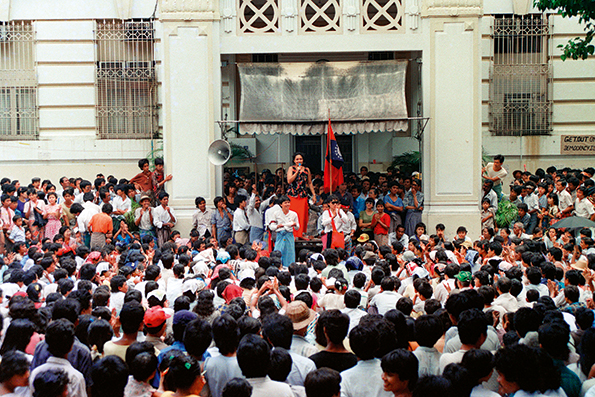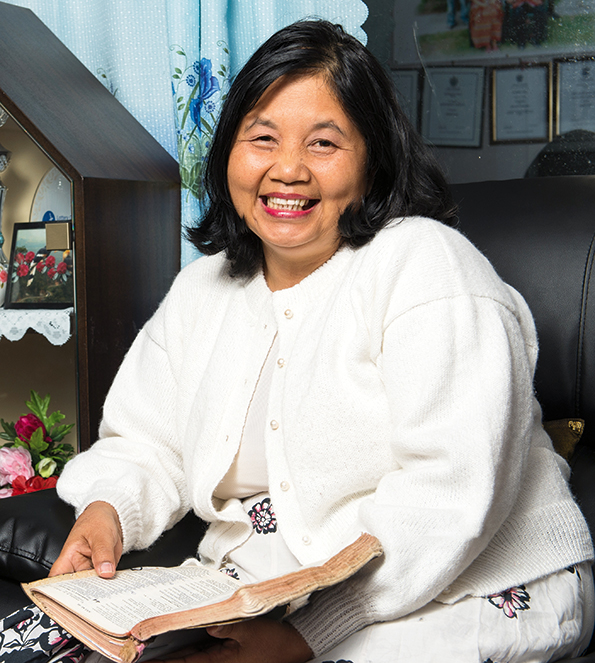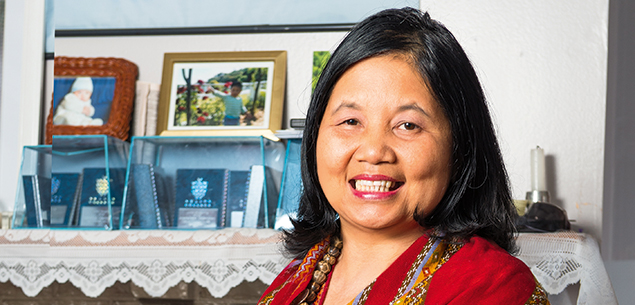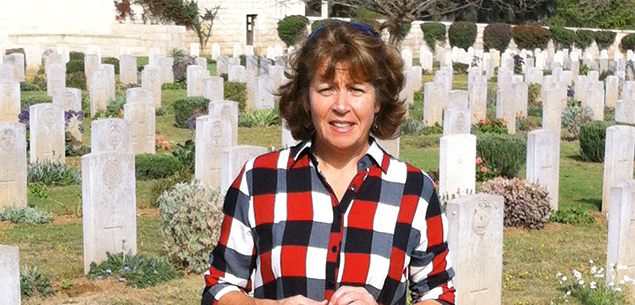Fleeing Burma in fear, Sui Ting Cinzah (49) was determined to start a new life.
“I’m a mother of five, living in Nelson and working for the Red Cross Refugee Services. My job as a cross-cultural supporter is to help new arrivals to New Zealand. I’m passionate about my role because I know first-hand what it is like to be a refugee.
I came to New Zealand with my family in 2006 after a dramatic escape from Myanmar (also known as Burma) during a time of violent political unrest.
My family and I overcame a number of obstacles to call this country our home. We spent many days travelling through the wild jungle, trying to escape undetected, only to be thrown in jail when we thought we had reached a safe place. It was a horrific experience, but it has made me appreciate the life I have now in New Zealand.
Before the transformation of my home country, my husband Bual (65) and I lived happily in a small village. We both worked in good jobs as school teachers and had a big garden at home, which enabled us to be quite self-sufficient.

The 8888 Uprising was a national protest demanding democracy that took place in Burma (now Myanmar).
Everything changed on August 8, 1988, when students in Rangoon (Yagon) began a pro-democracy movement, known as the 8888 Uprising, that spread throughout the country. Thousands were killed by the military during this time.
With a military presence, our lives were changed forever – the army did terrible things to the ordinary people.
As a supporter of those who fought for democracy, Bual’s life was in danger, forcing him to flee to Malaysia to protect himself. It was nine years before I could follow him with four of our children, who are now aged between 18 and 27.
Sadly, I had to leave my eldest daughter behind with extended family as she was too sick. It was very painful.
We slowly made our way to Malaysia, hiding in the jungle and only walking at night to avoid running into the army.
It was horrible – there were bugs and flies everywhere, biting us constantly, and we lost our shoes in a river.
Although my husband paid for an agent to help us when we got to Malaysia, we were arrested and thrown in jail with 20 other Burmese refugees.
I was separated from my children, who were also put in prison – one in a female prison with me, my teenage son was put in a men’s prison and the two little ones were locked up with other children.
It was heartbreaking to be separated from them in such a horrible way. They needed me and I couldn’t be there to hug them, to reassure them it would be okay.
After 18 days, the Office of the United Nations High Commissioner for Refugees (UNHCR) intervened and we were free. They helped us get to Thailand and then to New Zealand. We travelled to Thailand during the night, 40 of us, in a 10-person boat.
There, I was also reunited with my husband, although I didn’t recognise him at first because it had been so long!
We came to New Zealand soon after that. We were refugees starting our new life.

Sui Ting Cinzah was thrown in jail with 20 other Burmese refugees.
I didn’t know much about this country before arriving here. It was hard at first because my English was limited and it was a different culture, but for the first time, I finally felt safe.
Our oldest daughter, whom I was forced to leave behind, joined us three years later and now all of my children are very happy and successful.
My eldest daughter has finished an accounting and commerce degree, and is studying her master’s in Melbourne, while two of my children are currently studying engineering.
Refugees have varied and intriguing stories to tell, but the one thing we have in common is our gratitude to be given a new life. I’m happy that my family and I can enjoy success. We remember the trauma we have experienced, but now it’s finally in the past.”
Quick fire:
I’m inspired by… my children and the community I live in.
I love being able to… work with other refugees and help them integrate into the New Zealand culture.
I’m happiest when… I see people who have been separated from their families reunited again.
Photographs by: David Chadwick.

